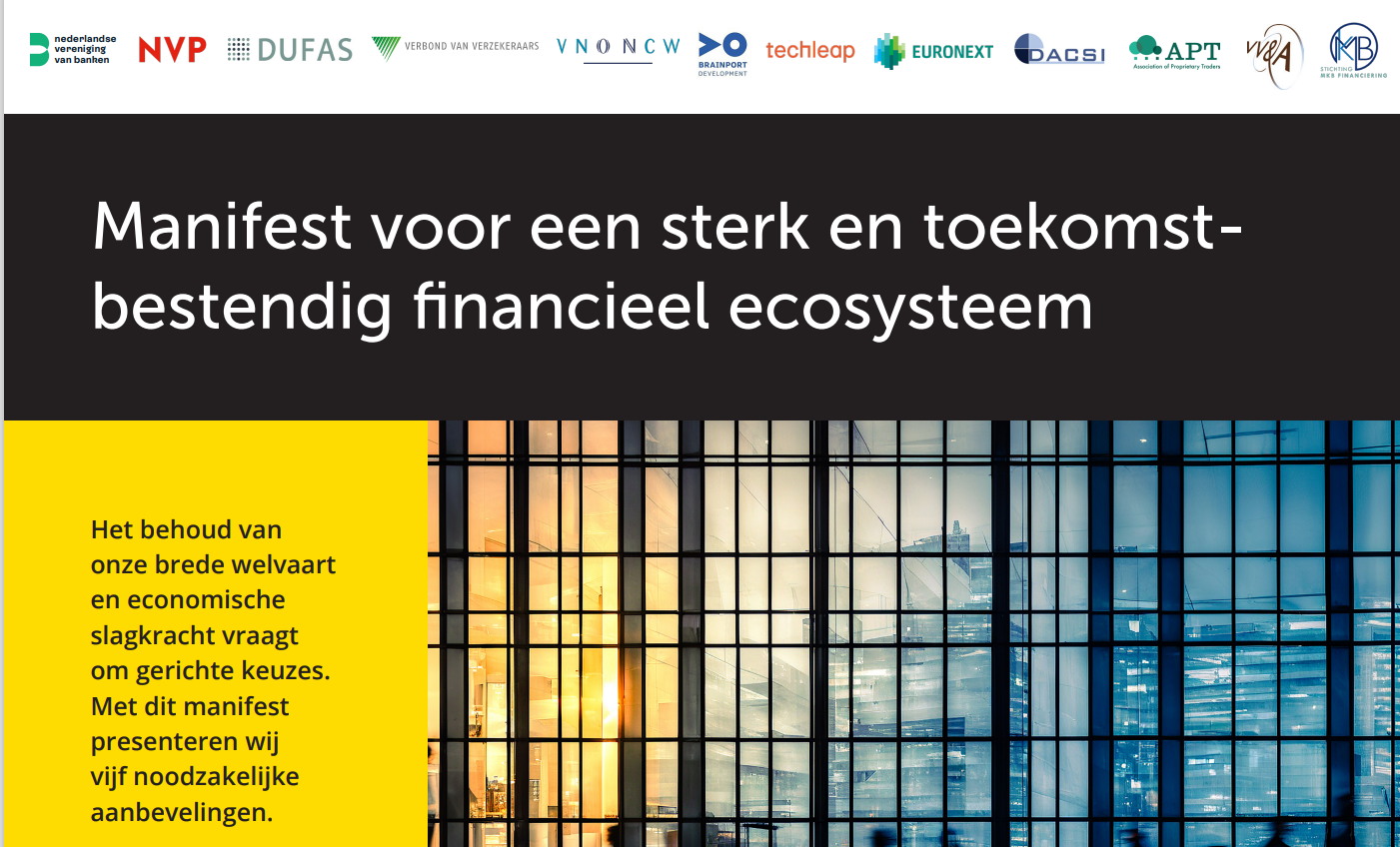
Manouk Fles has been with DUFAS for almost three years now as regulatory affairs manager. In that capacity, one week she deals with the developments of the capital markets union, the next week with anti-money laundering legislation or the relationship with regulators. So a variety of topics, but one of her major focuses is "retail investing. In plain human language: investing by people like you and me.
Retail investing, you have to explain that to me.
"That is investing by retail customers. I understand that the term might bring to mind retail investing, i.e. retail or storefronts, but that is not what is meant. It’s about retail investors, so ordinary people and SMEs, but not, for example, fund managers investing on behalf of pension funds. At DUFAS, we think a lot about how investing can be made attractive to everyone. If we want to explain to the general public why an investment account can make more sense than leaving your hard-earned money in a savings account, we shouldn’t make it too complicated. That goes for both regulations and the words we use. The question we ask: why are you saving in the first place, if inflation is higher than the interest you get? Then you end up losing out."
So how do you encourage investing?
"The AFM and DNB also do research into it: how much savings do you need, how much can you invest? Investing is done for the long term, to be able to absorb peaks and troughs in the market, and therefore not with money you will need in two weeks. I see in my own environment, among friends and family, that investing is not easy. There are all kinds of barriers you have to cross first. For example, opening an account can be a lengthy process, with extensive inquiries, and you get countless warnings and documents full of technical terms shoved under your nose. From DUFAS, we are trying to make investing more accessible."
So what should we think about?
"We see room for improvement in several areas. Some examples? The information that service providers must provide should be presented in a mandatory format, with written text. But many people are visually oriented and are better informed with a video, for example. So service providers should be given that option.
We could also look at mandatory warnings about the risks of investing. These act as a deterrent, while you never actually hear anyone about the risks of just saving in the long run, where your money ends up being worth less. Good education can help people understand risk. From DUFAS, we think more financial education during high school economics courses is crucial for increased awareness and knowledge.
Another example is access to appropriate services. We favor a so-called "light" regime. People who want to take advice or asset management now have to go through an extensive suitability test, even if they only want to invest a small amount and do not have a specific investment objective. By simplifying that suitability test, the interests of investors remain protected, but the barrier to taking up these services is lowered."
Sounds interesting. What about self-employed people?
"They are, of course, responsible for their own retirement provision. So they have to ask themselves: do I only want to save and is that possible if I want to retire at a normal age? Investing can be a solution. If people are only warned about the risks, nothing will happen."
So from DUFAS, you see room for improvement, but do you also see things that are already going well?
"The balance has to come back. We really see a movement now in politics that we see as positive. The importance of investing is being addressed, we notice that there is more attention to it. More money is needed in Europe for defense investments and infrastructure. That money has to come from somewhere. In this regard, it is interesting to look at how other countries activate private investors, such as in Sweden. There, with an accessible account with tax advantages, people are encouraged to invest, something that is very successful. For many people there it is quite normal to invest money instead of hoarding it."
Let’s face it: doesn’t investing also have a certain image?
"Yes, for some it has a casino image or people have the idea that investing is only for the rich. This is unjustified, there are many low-risk, low-cost products in which even small amounts can be invested. It should be part of everyone’s financial health, especially if we make investing more accessible. Incidentally, the Netherlands did not originally have such a savings culture at all; it only became so later. After all, the world’s first investment fund was founded in the Netherlands! Therefore, let’s simplify the rules, so that more Dutch people enter the market and learn to invest, working on their financial health."

